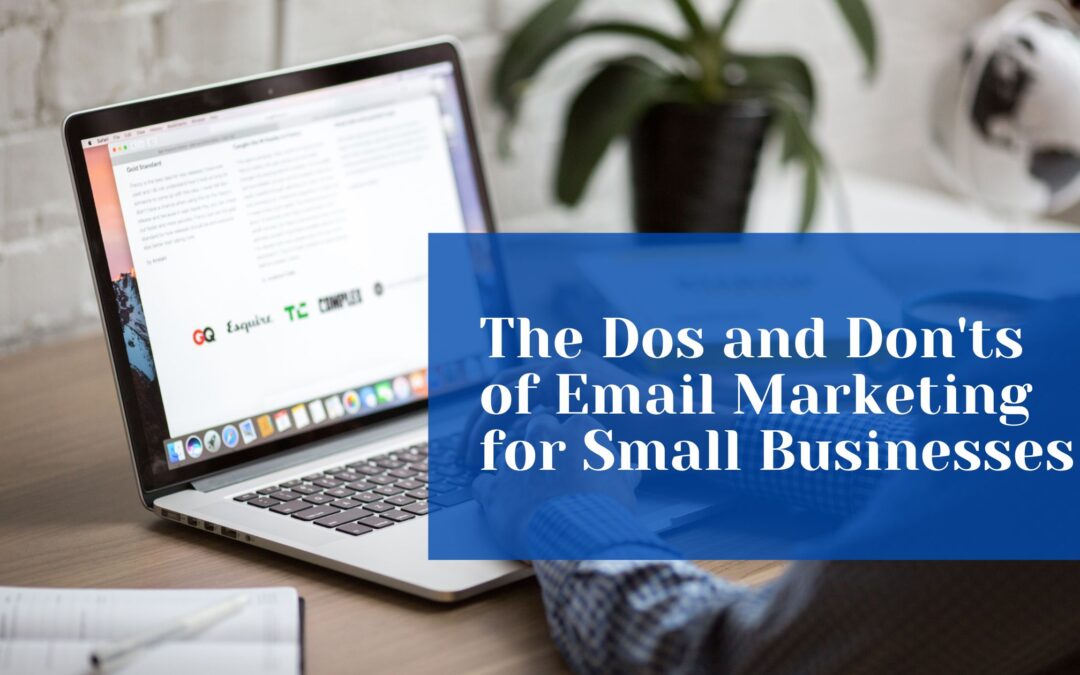Email marketing is critical for small businesses to engage with their target audience. When executed strategically, it can drive sales, build brand loyalty, and increase customer retention. However, effective email marketing requires careful planning and adherence to best practices. Below are the dos and don’ts of email marketing for small businesses, equipping you with the knowledge to launch successful campaigns.
The Dos of Email Marketing
- Create a quality email list: Focus on growing an organic email list by capturing leads through your website, social media platforms, and in-store sign-ups. Give valuable incentives, such as exclusive discounts or informative content, to encourage visitors to subscribe. A high-quality email list of engaged users is more likely to result in conversions.
- Segment your audience: Understand that your subscribers have different interests, needs, and preferences. Segment your email list based on demographic information, purchase history, or engagement levels. This allows you to send targeted and personalized emails that resonate with each group, increasing the chances of conversions.
- Craft compelling subject lines: Your subject line is your first impression of your recipients. It should be concise, attention-grabbing, and relevant to the content of your email. Avoid using misleading subject lines, which can damage credibility.
- Provide valuable content: Ensure that the content of your emails is informative, helpful, and relevant to your audience. Offer exclusive discounts, share industry insights, or provide helpful tips and tutorials. Consistently delivering valuable content builds trust with your subscribers, which could make them more likely to engage with your brand and purchase.
- Use responsive design: With the increasing use of mobile devices, optimizing your emails for different screen sizes is crucial. Ensure your emails are mobile-friendly and have a responsive design that adapts to other devices. A seamless user experience across platforms will improve engagement and conversion rates.
The Don’ts of Email Marketing
- Don’t spam your subscribers: Avoid bombarding your subscribers with excessive emails. Sending too many emails can lead to fatigue and unsubscribes. Instead, focus on sending relevant and timely emails that provide value to your subscribers. Quality always trumps quantity.
- Pay attention to email automation: Email automation is a game-changer for small businesses. Use automation tools to send welcome emails, abandoned cart reminders, or personalized product recommendations. Automation saves time and ensures that your subscribers receive timely, targeted messages.
- Avoid purchasing email lists: Buying email lists may seem like a quick way to expand your reach, but it can harm your email marketing efforts in the long run. Purchased lists often contain invalid or uninterested email addresses, leading to low engagement rates and potential spam complaints. It’s best to focus on growing your organic list.
- Pay attention to testing and analytics: Before sending emails, always test them across different email clients and devices to ensure they render correctly. Additionally, analyze the performance of your email campaigns using metrics like open rates, click-through rates, and conversion rates. This data provides valuable insights to optimize your future campaigns.
- Avoid neglecting your unsubscribe process: Make it easy for subscribers to unsubscribe from your emails if they no longer wish to receive them. A clear and visible unsubscribe link demonstrates respect for your subscribers’ preferences and helps maintain a positive brand image.
Conclusion
Email marketing can be a powerful tool for small businesses to connect with their audience, drive conversions, and build brand loyalty. By following the dos and avoiding don’ts of email marketing, you can create effective campaigns that deliver value to your subscribers and generate meaningful results for your business. Build a quality email list, provide valuable content, and personalize your messages. Embrace automation, test your emails, and continuously analyze your campaign performance to improve your email marketing strategy. With these guidelines in mind, you’ll be well-equipped to make the most of your email marketing efforts as a small business.
